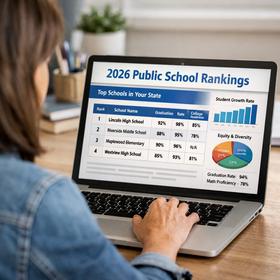While every teacher naturally wants to help students learn and excel, there are inevitably some “favorites” in the classroom. However, based on expert information and educators themselves, parents can be involved and take simple steps to help get on the teacher’s “good side.”
Meet the Teacher
Most schools host “open-house” or “meet the teacher” events at the beginning of any school year or new semester. If your child’s school provides the community with this opportunity, try your best to attend! The open-house invitations allow parents and teachers to interact face-to-face.
This parent-teacher meeting can ameliorate various miscommunication issues down the line. For example, if your child comes home complaining of a teacher’s unfairness or assignment, you can use your own knowledge of the teacher (based on your meeting) to assess if your child’s perceptions are accurate. Upon meeting parents at open-house events, many teachers can clearly outline their classroom procedures, grading policies, and so forth. By becoming aware of these guidelines and the teacher’s personality, you can more clearly assess any future issues that your child may encounter in the teacher’s class.
Establish Communication
If you can meet the teacher at an open-house event, then you’re off to the right start! However, if you cannot attend a meet-the-teacher event, try offering your introduction through another alternative method. For example, email the teacher, introducing yourself in a friendly fashion. Offer your home number or email address so the teacher can easily contact you. By making yourself available, your child’s teacher can more effectively communicate any concerns or updates regarding your child or the class.
Ask…Don’t Accuse!
In a world of instant communication, including emails, online grading, and hundreds of other resources and tools, it’s incredible how easily misunderstandings can occur! When trying to find out the answer to a question or issue, be sure to ask the teacher in a considerate and cooperative tone. Parents and teachers can often misinterpret the language of an email or read certain words or phrases of a message incorrectly. These miscommunications can create tension and conflict, where the student can be caught in the middle. To avoid this problem, try phrasing concerns as a question instead of an accusation.
For example, if your son, Johnny, complained to you that their teacher wouldn’t give credit for his homework, then you certainly have the right to follow up with the teacher to find out why! When contacting the teacher, however, avoid an accusatory email or message such as: “I need to know why you would not give Johnny credit. He worked hard, and that assignment and this is unfair. Instead of using a combative tone, you should approach the problem with genuine concern and inquiry. Your message could read, “Johnny was concerned about not getting credit for his homework. I just wanted to follow up with you to find out if he did anything wrong so we can avoid this problem in the future. Can you offer more insight?”
By assuming that the teacher has a clear reason for his or her actions, parents are able to approach potential problems from a solution perspective instead of as an accusatory perspective. Remember that teachers are expertly trained to help teach students various lessons of academic and behavioral development; therefore, when you are concerned about a teacher’s grading or assessment of your child, begin by asking why before administering demands!
Trust the Teacher
Nearly every parent has heard their child come home from school spouting horrible abominations of the unfairness of their teacher! As children are provided with various boundaries and consequences in school, they will naturally become frustrated and angry at times.
As you listen to any potential complaints that your child shares, always remind yourself that your child’s teacher is an expert who should be trusted. Before believing every complaint your child proclaims, remember that your child may be speaking with exaggeration due to emotions.
If you are concerned about your child’s complaints, contact the teacher to find out details of any reoccurring behavior issues or any issues that sound out of the ordinary. You can effectively approach any child’s complaints by calling or emailing the teacher to ask, for example, “I heard (son/daughter’s name) was frustrated about (this occurrence) in class. I wanted to see if we can do anything at home to help him become more positive about this situation. Can you help me understand what (he or she) is struggling with in your class?”
Offer Help
If your child is struggling in class, approach the issue by contacting the teacher to offer help. Instead of assuming that the teacher is the only individual who can help your child learn, ask your teacher about ways in which you can help your child outside of school.
For example, if your child is failing or struggling in class, contact the teacher and ask, “My son/daughter is having a hard time. Do you have any suggestions for what we can do at home? Can I help my son/daughter by hiring a tutor?” By offering your own services and by letting the teacher know how invested you are in your child’s learning, you will be able to gain more insight and information on the best approach and methods for success. This simple step can often save you, the child, and the teacher a great deal of time and frustration!
Getting on a teacher’s good side does not involve sending apples on the first day or presents during the holidays. Instead, taking opportunities to meet your child’s teacher and working positively with him or her to help your child learn will help you earn an A+ in parental participation!
Questions? Contact us on Facebook. @publicschoolreview















